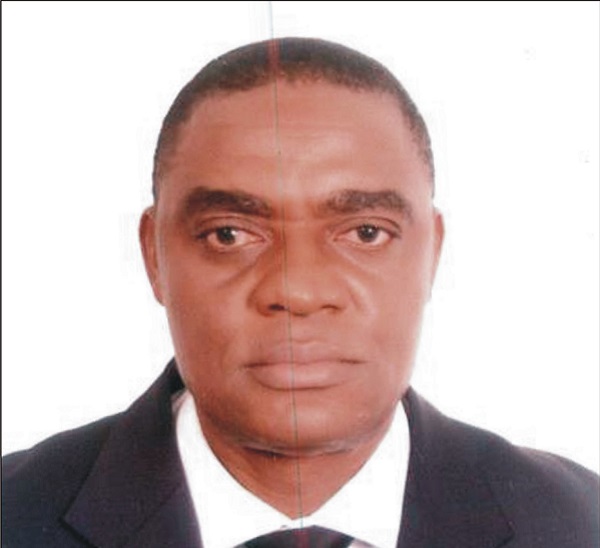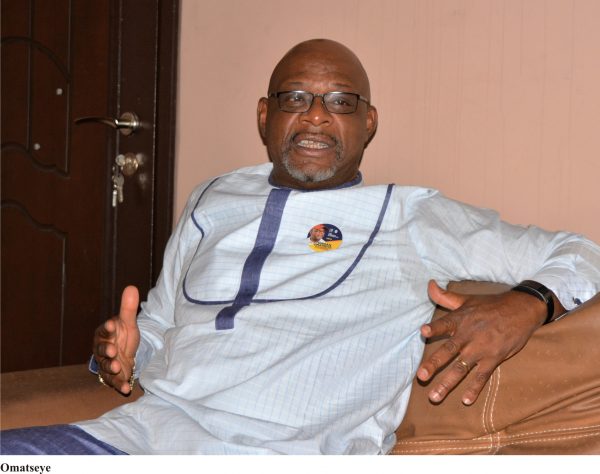Supreme Court’s Ruling On SLAC Will Affect Nigeria’s Economy- Nwagbara

By Kenneth Jukpor
Barr. Emmanuel Nwagbara is a renowned maritime lawyer. In this interview with MMS Plus, he bares his mind on the multifarious challenges facing the nation’s maritime sector, highlighting the relationship between admiralty law and maritime development in the country and the importance of the upcoming Supreme Court judgment on the fate of Shipping Lines Agency Charges (SLAC) collected by shipping lines. This interview was done during a recent stakeholders seminar organized by the Nigerian Shippers’ Council (NSC) in collaboration with the Nigeria Customs Service (NCS) on the theme; “Ethics and Integrity in International Trade”.
Excerpts:
What are the major challenges facing the nation’s maritime sector?
All the major roads which lead to Apapa are impassable. You cannot access Apapa from the Oshodi- Apapa expressway. You can’t get into Apapa via the western avenue without spending hours in the traffic. At certain times in the day towards evening time, anyone who leaves in Apapa would dread coming home if he is outside Apapa at that time because he would find it difficult and spend at least five hours on the road before getting to his destination.
As a result of this problem, major businesses in Apapa have been forced to relocate to other locations because people no longer shop in Apapa. Yesterday I went to one of the shops where I pick up suites but I discovered that they were no longer there and when I asked why, he said it was because of low patronage. People no longer come to Apapa to have fun, shop or do business because of the state of the roads. Apapa port city used to be a city of pride for Nigeria, but today Apapa is filthy, riddled with potholes, congested with trucks and tankers. As soon as you enter Apapa, you are welcomed with noise, chaos, inadequate security, unpleasant smell; there is nothing to write home about Apapa.
So, we are advocating for a complete reversal of the situation. The government should restore the identity and sanity of Apapa by ensuring that the roads are rehabilitated. The Tin Can axis is a death-trap, although the government made a promise months back (in March) that the Oshodi-Apapa expressway would be rehabilitated but we have not seen any sign that work has commenced. The little work we have seen in Apapa is very slow and it is causing traffic gridlock so the government should start-up actions on these roads to ensure the dignity of Apapa is restored.
What informed today’s event which can be described as a romance between the Nigerian Shippers’ Council (NSC) and the Nigerian Customs Service (NCS)?
It is a result of different interactions and interface that the Shippers’ Council had with the Customs. They wanted to expand the collaboration by getting the stakeholders together to see that both government agencies are in tandem to ensure that the processes that lead to international trade are simplified. Most of the issues that we have talked about here today involve the powers of government to regulate and the powers of the institutions that are in charge of certain services to improve. We are emphasizing the need for everybody to play its own part in this fight against corruption. I think the agreement that brought about this seminar on ethics and integrity is as a result of the robust relationship both agencies have had in relation to international trade.
This issue of integrity, ethics and corruption in the port system has become a recurring on, yet the problems still remain. Why is this so?
We should not only talk about what is responsible for these problems, rather we should ask whether we have to continue in this way? We should continue to have these meetings because custom officers are transferred out from time to time but the stakeholders are not transferred. However, as stakeholder we feel the pinch more because business doesn’t flow as expected.
So, we should continue to talk about it because as we do, someday reformed officers who will appreciate the need seamless flow of trade will come into the port system and by then we would have achieved our aim. We can’t keep quiet as stakeholders; we must continue to demand that things improve. This advocacy must continue and it is the responsibility of the stakeholders to keep talking about it until government officials who may not be ready to work, will be forced to perform their duties. Similarly, all government agencies who are not prepared to abide by the rules would be forced to abide by the rules and those officers who can’t change would have to ask for transfer to leave certain positions. Government agencies would be left with officers who are ready to run along with the stakeholders and they equally have to obey the laws to facilitate trade. We must continue to ask several questions and make demands until things are done right; we will not be discouraged.
Recently, a General Manger at the Nigerian Ports Authority talked about demolishing some structures within Apapa to enhance the development of the port access roads. Do you subscribe to that?
Well, usually cites are remodeled but it must be a carefully planned project and stakeholders have always demanded location of certain institutions in Apapa. So, for me, it is not about demolition that is not planned I think demolition should be the ones that make sense and comply with the law of course. Where there are obstructions, demolitions that remove such obstructions definitely comply with the law. Government can plan a programmed demolition of certain structures to create access in and out of Apapa. This is part of urban renewal which any government can embark on. What this means is if we demolish to create access roads we know the outcome of it. The government can demolish to create access roads and pay compensations where necessary. This is part of urban renewal process.
Looking at the country today, you would find that there is a dearth in ethics and integrity across all sectors of the Nigerian economy; how can we change this trend especially in the maritime industry?
The change should begin with us as individuals in whatever capacity in the maritime sector. There was a time that the Nigeria Customs Service (NCS) was alleged to be the most corrupt body in Nigeria. Today, going by what we see in the nation, I’m not sure they are still the most corrupt. Corruption has eaten into every nook and cranny in the country but with seminars like this we can begin to get it right in the maritime sector and by extension other sectors of the economy.
Recently, the Appeal court ruled that the Nigerian Shippers Council’s role as port economic regulator was in contrast with the Council’s establishing Act as well as the Nigerian Ports Authority (NPA) Act. What is the implication of this and the other judgments?
The matter is before the Supreme Court and there are some comments I can make that become contempt of court. The Supreme Court would have to pronounce on that and until the Court does, we don’t accept the decision of the Court of Appeal on that matter.
How about the issue of Shipping Lines Agency Charges (SLAC), which the Appeal Court upheld as illegal and ruled for the refund by shipping lines?
SLAC has been declared as illegal but the shipping companies that collected SLAC also think that they also have a right to charge SLAC so they have gone to appeal. Shippers’ Council felt that the pronouncement of the Court of Appeal with regards to their status as port economic regulator is wrong, so they have also gone on appeal and the Shippers Association also feel that the Court of Appeal pronouncement as regards their joinder is wrong, so they also went on an appeal. Their argument is that they supposed to be part of the case because they are the ones that pay the bills. This case would go a long way to determine the future of this country because about 90% of the things we consume in Nigeria come in through the ports and if these products cannot be made available to the public at a reasonable price because of these excess charges within the port system it would be an indirect way of killing the economy. This case deserves the priority of the Supreme Court because it would have an effect on the nation’s economy.
How has the practice of admiralty law fared in Nigeria?
Admiralty law is a very big discipline with so many branches, but Nigeria is still a developing country and our maritime sector hasn’t developed to such a level where we can compare with developed countries. However, for the level that Nigeria is operating our laws are also developing but not as quickly as we expect it. We are going to get to the desired heights but the maritime sector wouldn’t develop in isolation of the laws and other sectors of the economy that are connected to maritime.
Ideally, when you talk about the maritime sector you would have to recognize the rail system, land transport, ships that ply the waters, the regulations, etc. For instance, when we talk of the port system you know that if containers do not leave the ports early enough when they come to Nigeria, shipping companies would charge us so much to come to Nigeria. This would mean that goods wouldn’t come in as quickly as we expect because those negotiating that freight would want to wait until they get cheaper freight rate to pay before importing. So, the functionality of Nigeria’s port system beginning from the port access roads, reduced turnaround time and efficiency at the ports, more vessels would come in. Such increase in activities would mean more cases that would arise in the maritime domain and also build the maritime law in the country. There are so many aspects of admiralty law we aren’t practicing at the moment because Nigeria’s maritime industry hasn’t sufficiently developed. As the sector develops, more issues come up for adjudication in the courts and the maritime laws in the country would expand in available laws and the practice.
Copyright MMS Plus.
All rights reserved. This material, and other digital content on this website, may not be reproduced, published, broadcast, rewritten or redistributed in whole or in part without prior express written permission from KINGS COMMUNICATIONS LIMITED.






